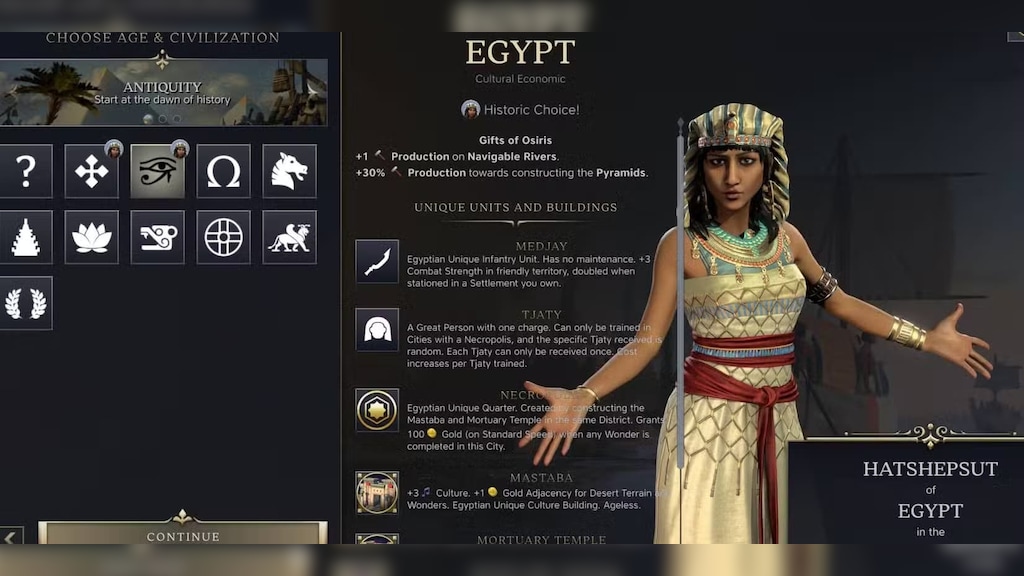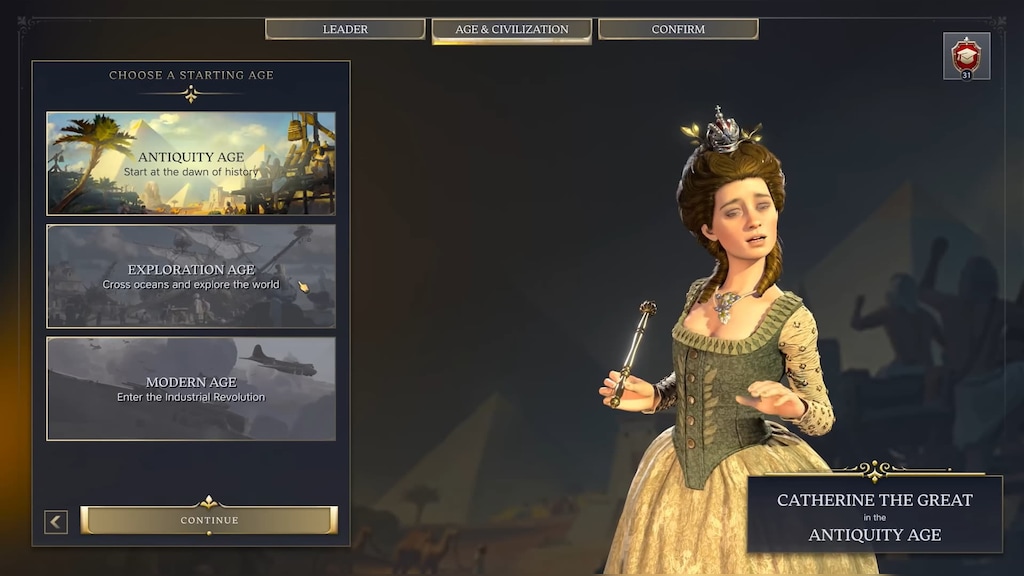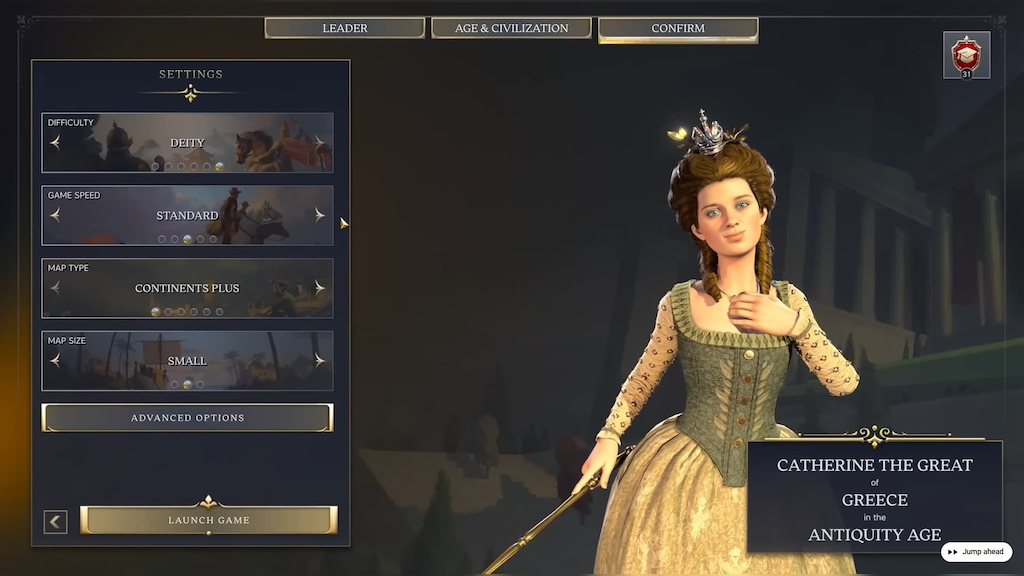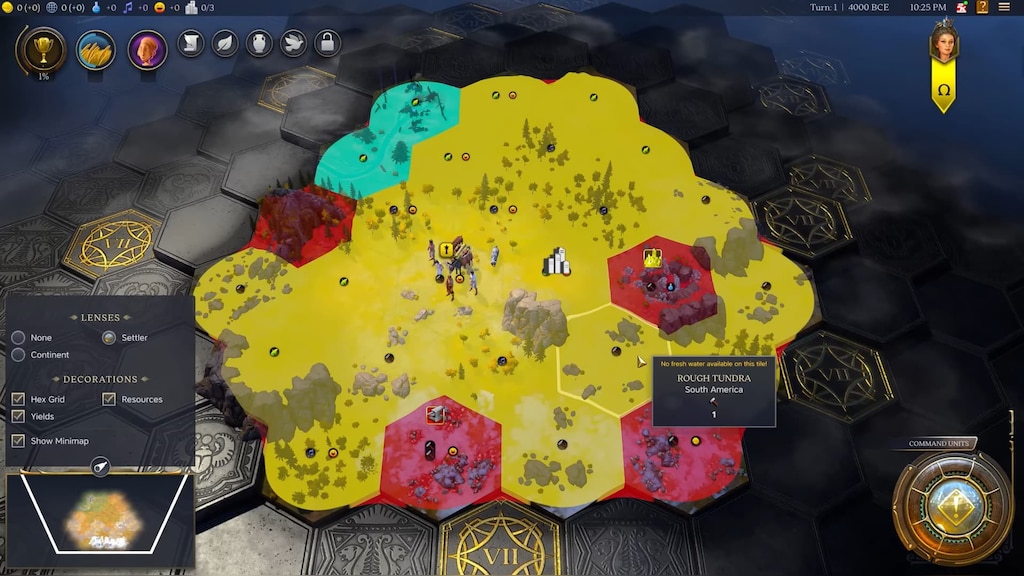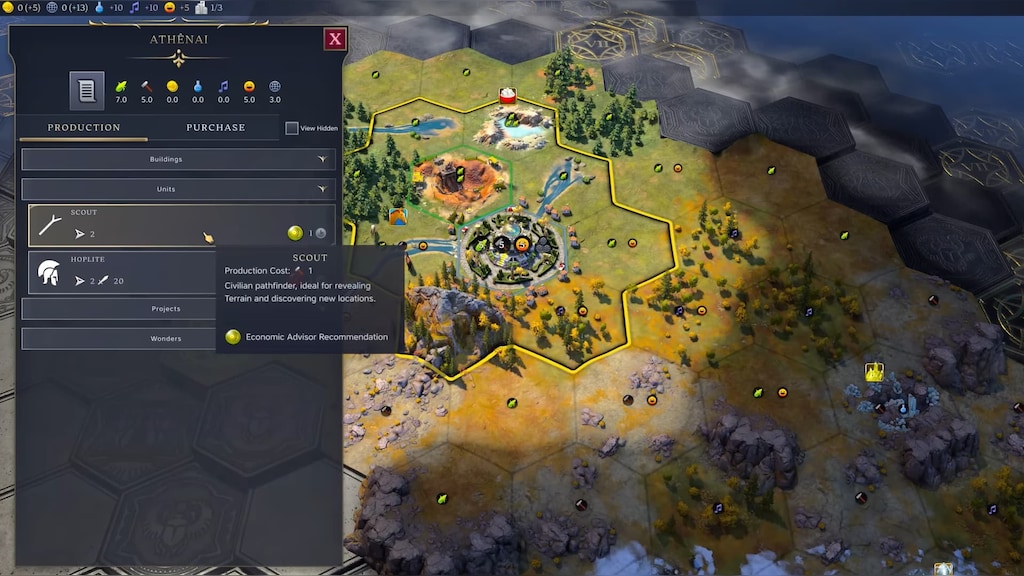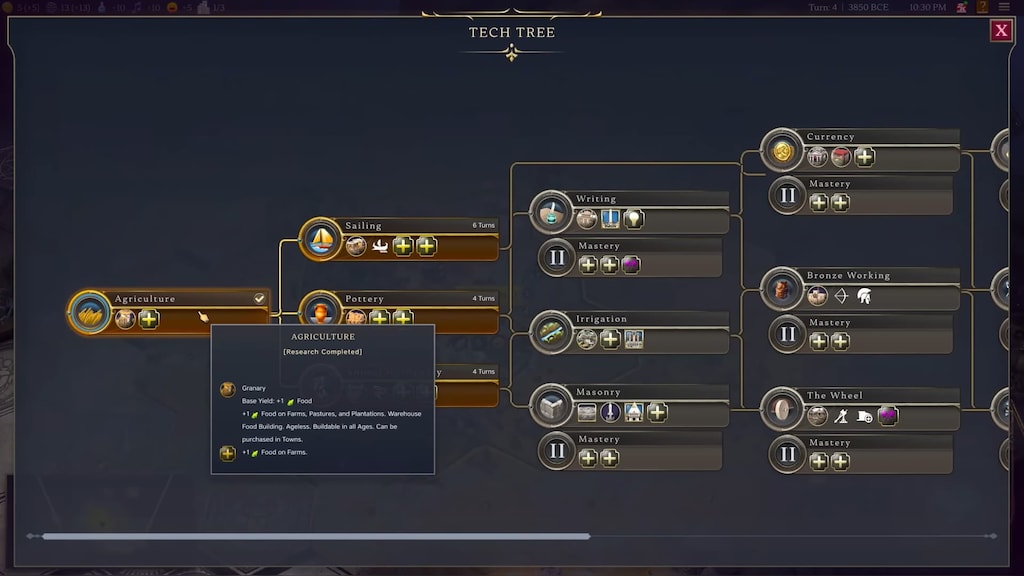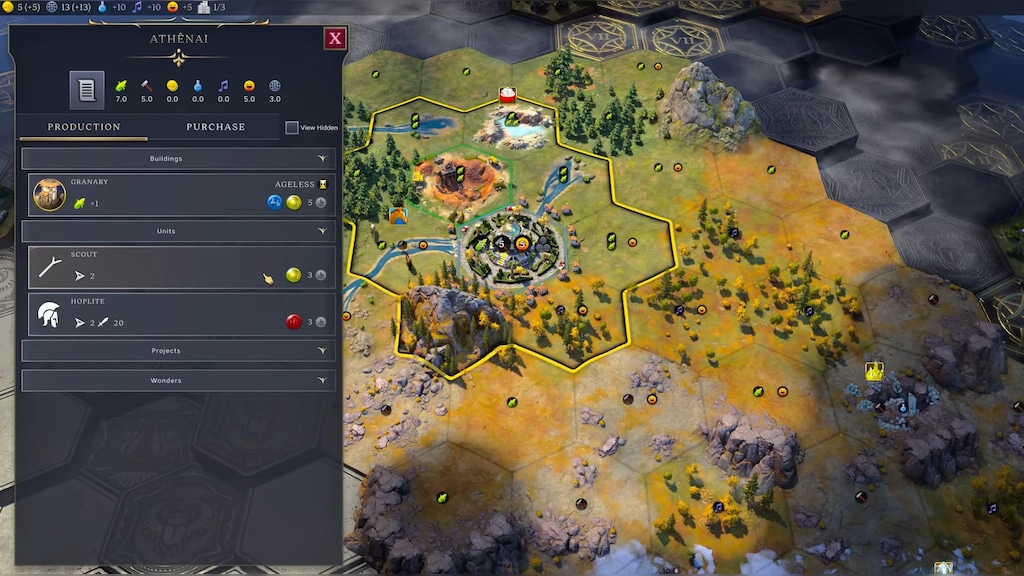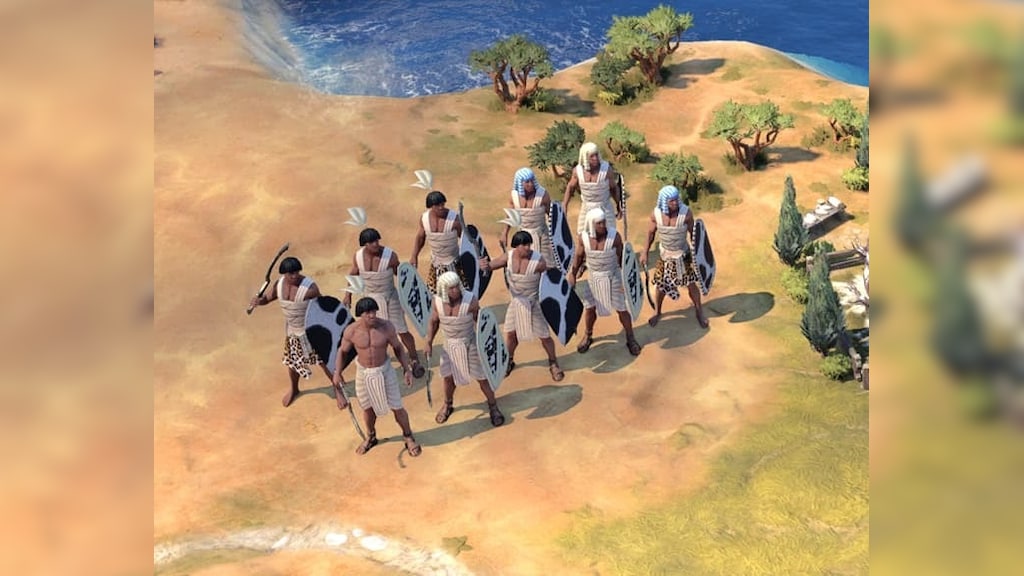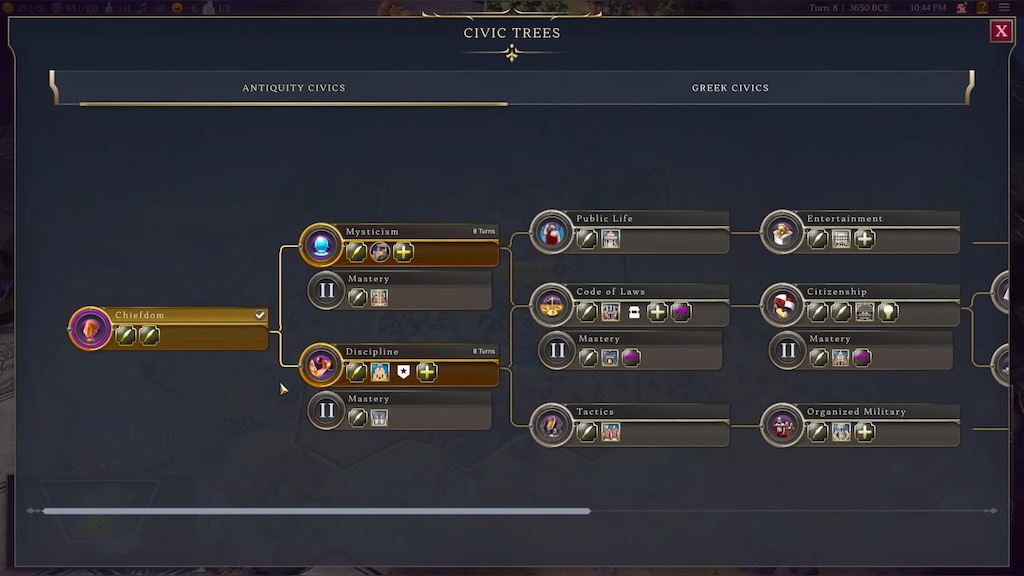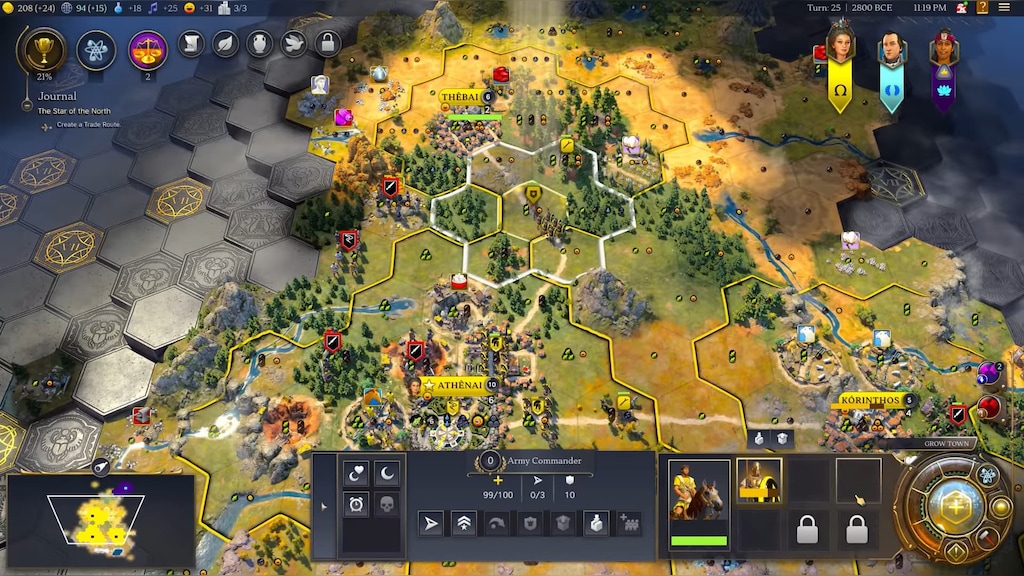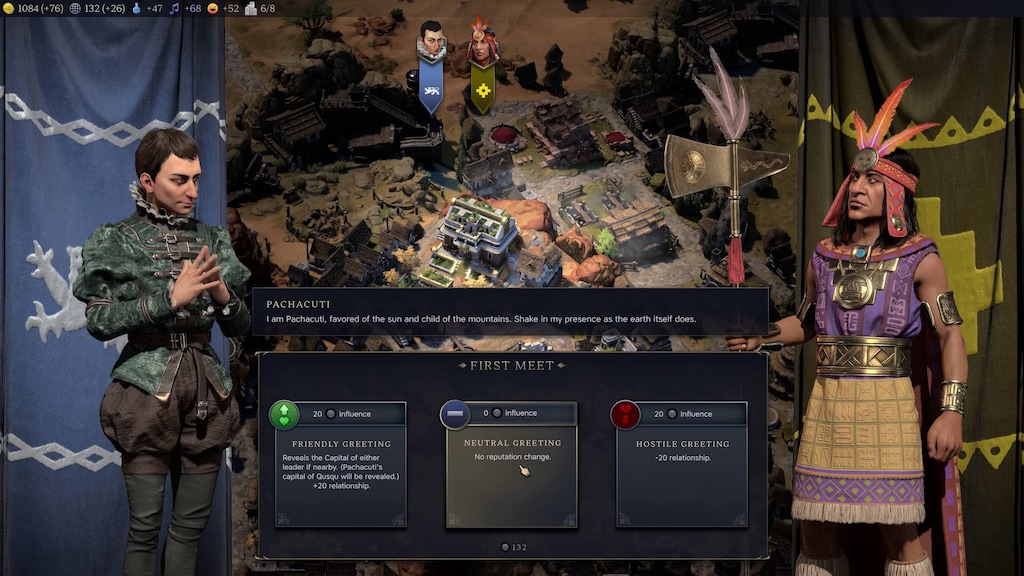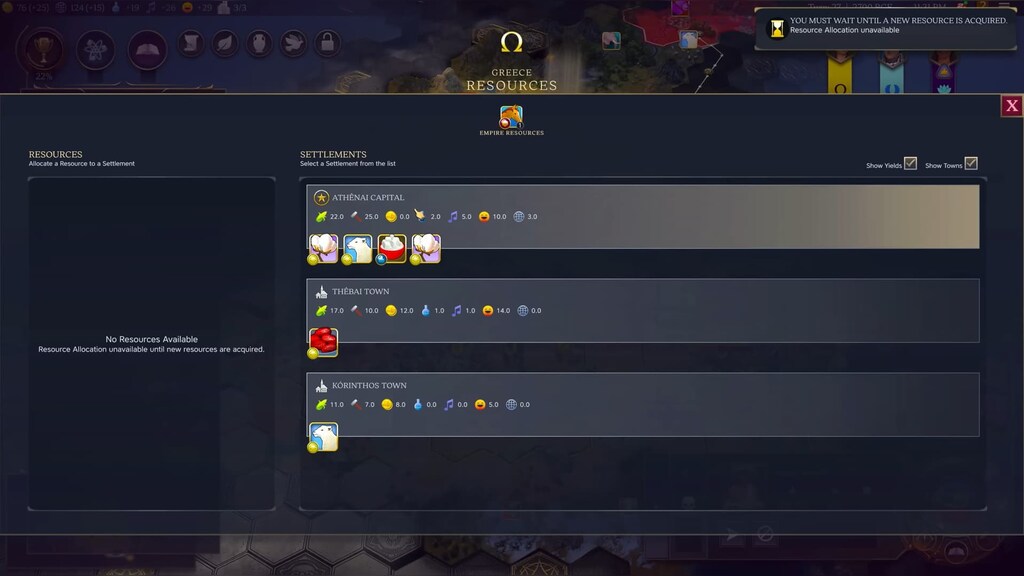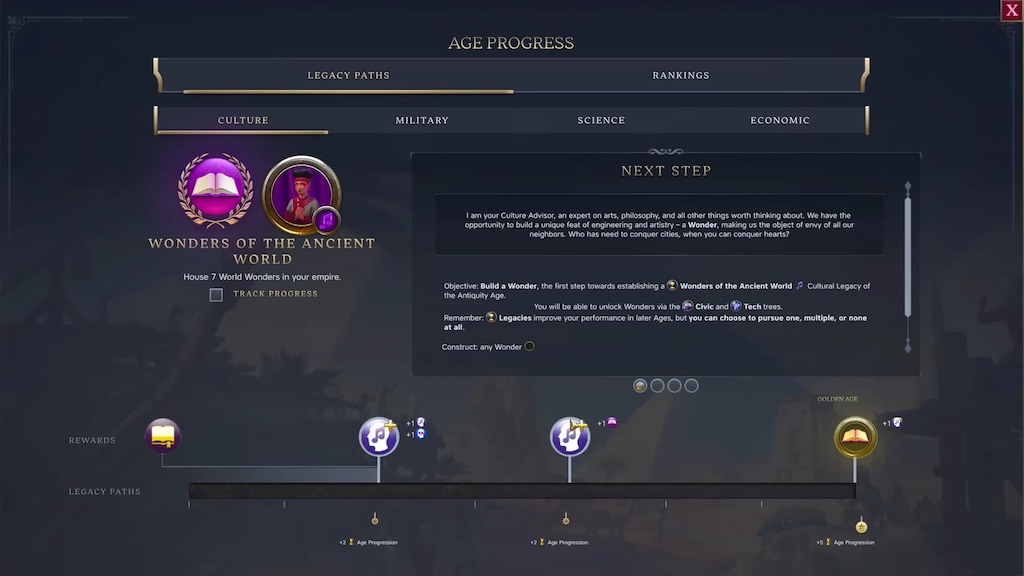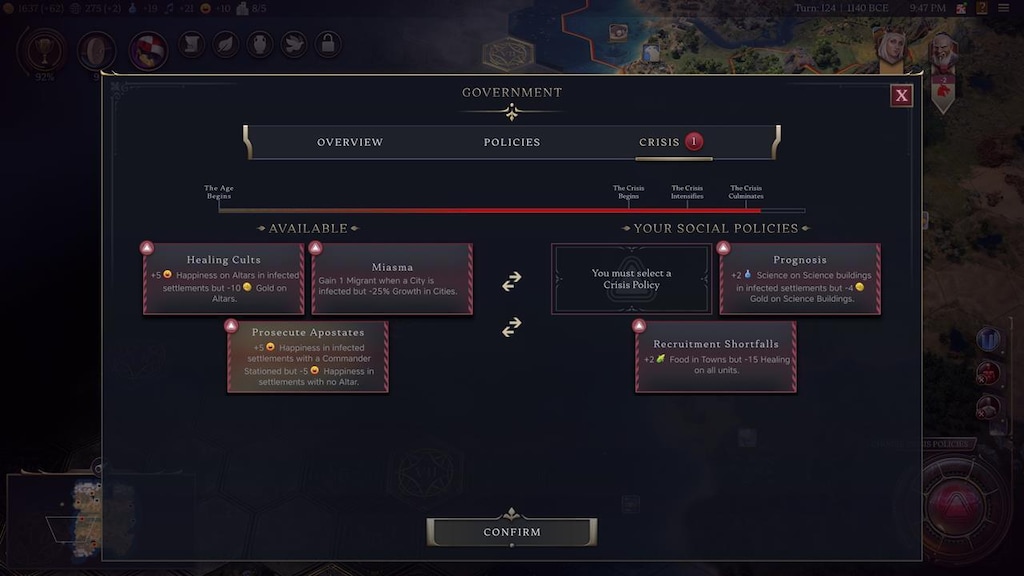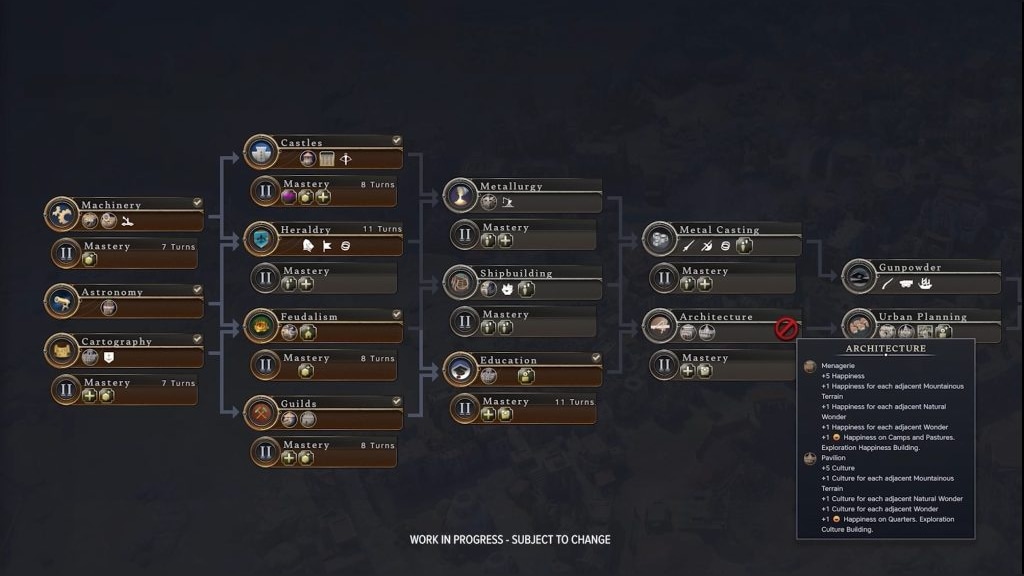Just starting out in Civilization VII? Good call. It’s the most accessible Civ game in years and still deep enough to keep you playing for hundreds of hours. Even if you’ve never touched a Civilization before, this version does a lot to help you find your footing.
- Civilization VII Beginners Guide: Use the Tutorial
- Leader and Civilization: Mix and Match
- Starting Age: Pick Antiquity
- Game Settings for a Smoother First Run
- Founding Your Capital
- Initial Production Choices
- Early Research
- Building Priorities
- Early Defense
- Civics and Government
- Scouting Beyond the Start
- Military and Commanders
- Diplomacy and Influence
- Roads and Trade
- Ages and Legacy Paths
- Crisis Events
- Unique Civics and Mastery
- Final Beginners Tips
Whether you’re coming back from older titles or jumping in cold, Civilization VII respects your time. The interface is cleaner, the tutorials smarter, and early turns feel more intuitive. It doesn’t dumb things down, but it gives you better tools to get going.
Civilization VII Beginners Guide: Use the Tutorial
Yes, really. Even if you played every Civilization since II, start with the tutorial. It’s responsive, context-aware, and useful. It doesn’t just flood you with prompts. It reacts to your actions and suggests smarter options as you go. You’ll get specific help for your civ-leader combo and early access to newer mechanics like Celebrations and Legacy Paths. Skip it, and you’ll probably spend your first 40 turns wondering why things feel off.
Leader and Civilization: Mix and Match
Leaders and civilizations are now selected separately, allowing for a wider range of combinations. Understanding how their bonuses interact can lead to more effective setups.
A straightforward option is Hatshepsut with Egypt. Her bonus increases Production near rivers, and Egypt adds a flat Production bonus to river-adjacent tiles. This pairing works well early on settle near water, build efficiently, and expand steadily. Once familiar with the mechanics, more specialized or aggressive pairings can be explored.
Starting Age: Pick Antiquity
Antiquity is the best place to start. It brings new systems in slowly growth, production, units, diplomacy so you’re not overwhelmed. Later Ages throw everything at you all at once and are better once you’ve learned the basics.
Game Settings for a Smoother First Run
- Difficulty: Scribe
- Game Speed: Standard
- Map Type: Continents Plus
- Map Size: Small
- Age Length: Long
These settings make your first game easier to handle. Scribe lets you recover from bad choices without punishing you too hard. Standard speed gives each turn some weight without dragging things out.
Continents Plus keeps the terrain interesting without locking you into one strategy. A small map means fewer rivals to track, and diplomacy stays manageable. Long Ages stretch out the tech and civic pacing so you have time to actually understand each new system before the next one lands.
Founding Your Capital
Always settle your first city near fresh water. Rivers, lakes, oases. Anything that triggers Celebrations. These boost yields, especially food and happiness, and help your cities grow fast. No water? You’ll lag behind from the start.
Initial Production Choices
Open with a Scout. Or two. Discovery Tiles have replaced goody huts and offer stronger early-game rewards: free techs, resources, even units. Getting to them first matters. Good scouting also helps you map out future city locations and spot threats early.
Early Research
You begin the game with Agriculture already unlocked, so it doesn’t require further research.
If you’re near water, and you should be, go for Sailing. It unlocks key food buildings, early naval options, and ties directly into Egypt’s river-focused advantages. The goal is to establish a fast-growing economy from the start.
Building Priorities
Start with a Granary in your Urban District. Ideally, place it next to a river for extra yield. More food means faster citizens, which means faster production, more tiles, and earlier units. Use Grow City to claim the best nearby tiles. Prioritize ones with food and production.
Early Defense
Egypt gets early access to Medjay, who are excellent home defenders. Train one quickly. Add a Warrior to back it up. Don’t go overboard on units. Just enough to hold your borders and deter aggression. One or two visible units is often all it takes to keep the AI from pushing in.
Civics and Government
Your first Civic hits around turn 10. Here’s a solid early-game trio:
- Civic: arrival of Hapi (food bonus on river tiles, easier river crossing)
- Government: oligarchy (boosts Celebration yields and supports growth)
- Social Policy: tool Making (flat Production and Science from your Palace)
This combo gives you strong early growth and enough flexibility to pivot as needed. You’ll have good tile yields, decent defense, and faster infrastructure.
Scouting Beyond the Start
Keep your Scouts moving. Natural Wonders offer unique bonuses and boost happiness, so spotting them early helps. You’ll also want to reveal unclaimed territory, valuable resources, and neutral cities before someone else gets there.
Military and Commanders
Units no longer gain experience on their own. Instead, all XP goes to the closest Commander, who manages promotions and upgrades. Each Commander can lead up to six units. Grouping them early improves coordination and overall effectiveness.
Reinforcement lets you drop new units into an existing group instantly, no matter their location. For early defense, stick with a basic melee and ranged combo. It won’t push into enemy territory, but it’ll hold your ground when you need it to.
Diplomacy and Influence
Influence Points act as your diplomatic currency. They’re used to make deals, apply cultural pressure, or gain favor with neutral cities.
It’s best not to spend them all at once. Keeping a small reserve gives you options. A well-timed move can prevent conflict, disrupt an opponent, or shift control of a neutral city. Used strategically, Influence can have a major impact.
Roads and Trade
If a new city is founded within 10 tiles of an existing one, a road is built automatically—no builder required.
After researching Code of Laws, Traders become available. They transport resources, connect cities, and boost internal production. Trade routes aren’t just for generating gold they can cover shortages or help new cities grow faster.
Ages and Legacy Paths
When a new Age begins, all cities except your Capital revert to Towns. Infrastructure stays in place, but buildings must be reconstructed using improved tools.
Military units not assigned to a Commander are removed during the Age transition. To keep them, make sure they’re grouped in advance.
Legacy Paths set the tone for how your game unfolds. You pick one Science, Culture, Military, or Economy and that choice sticks. It affects your policies, goals, and win conditions, so it makes sense to pick something that matches how you’re already playing, not just what sounds interesting.
The Age timer progresses as you complete objectives. At 100 percent, the next Age begins. The game ends when the Modern Age timer is full.
Crisis Events
At 70 percent Age timer, a crisis hits. These are semi-random, always disruptive, and escalate over time.
Crises add temporary policies and penalties that change how you play. If your economy is solid, you’ll survive. If it’s already shaky, the added pressure can be brutal. Plan ahead and leave some margin in your Happiness and Gold to absorb the impact.
Unique Civics and Mastery
Each civ has its own Civic tree with unique perks. You’ll usually get better results by playing to those strengths instead of picking up every general bonus you see.
You can Master techs and civics for extra yields and Codes. This is crucial for unlocking stronger policies and completing Legacy goals. Skip mastery and your progress will slow fast.
Final Beginners Tips
Use the Civilopedia. It goes deeper than the UI ever will. Save often, because you will mess up, and that’s fine. Try weird combos. Civilization VII rewards creative pairings more than it looks like. And most important: don’t rush. Learn how the systems connect and build your rhythm. It’s a long game, and early moves echo for a long time.





